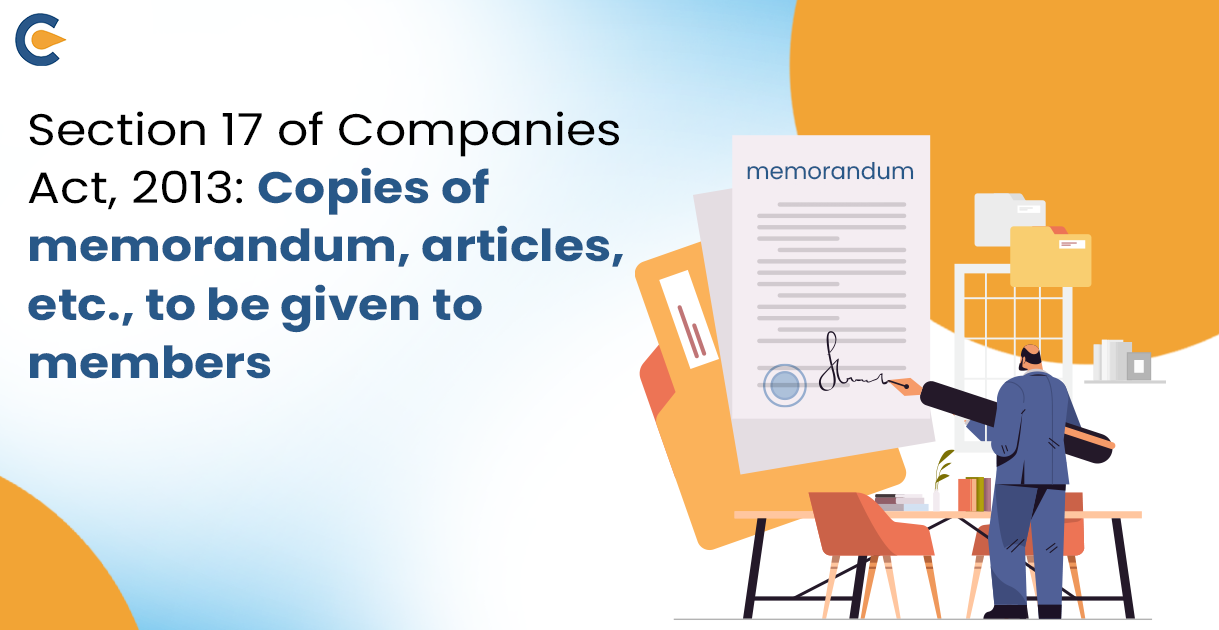The general legal framework that controls every element of business organizations is known as company law. It lays out the legal standards and guidelines that businesses must go by in order to guarantee accountability, transparency, and legal compliance. The laws and rules that specify how businesses are formed, organized, run, and governed in a certain jurisdiction is referred to as company law. Together, company law, MOA, and AOA guarantee that businesses are legitimately formed, have well-defined goals, and conduct them in a transparent, controlled way. The terms of the relevant company legislation must be followed by these papers (MOA and AOA). The minimal legal criteria for MOA and AOA are specified by company law; however businesses can alter these papers within the legal framework to meet their unique needs.
The Memorandum of Association (MOA) and Articles of Association (AOA) serve as the cornerstone upon which every company’s foundation is formed in terms of corporate governance and transparency. These documents provide crucial insights into the company’s operations by outlining the organization’s goals, authority, and internal rules. However, getting access to these important records hasn’t always been simple. We shall explore the crucial subject of supplying copies of MOA and AOA upon members’ requests, as well as the costs related to such requests, in this blog.
What is Memorandum of Association?
A legal document known as the Memorandum of Association (MoA) outlines the foundation for the creation of a corporation. In many jurisdictions, including India, and some other common law nations, it is one of the crucial papers needed to form a corporation.
The MoA comprises the signatures as well as the names of the subscribers who are the company’s founding shareholders, the company’s name, registered office address, business type, authorized share capital, and more. It also specifies the goals, authority, and restrictions that the organization must adhere to. The MoA is essential since it outlines the company’s activities and aids in protecting the interests of the shareholders. Depending on the laws and regulations of the relevant country, any modifications to the MoA require consent from the regulatory authorities and the shareholders.
What is Articles of Association?
The Articles of Association (AOA) are the second-most crucial document needed for your company registration. This is a written agreement that lays forth the laws, rules, and policies that govern or run the company. The MOA of an organization has priority over the AOA. Every organization needs to have an AOA since it plays a crucial role in defining its internal duties and responsibilities. The AOA’s content should be consistent with the MOA and the 2013 Companies Act. As a result, you also need AOA to register your company.
Section 17 of the Companies Act, 2013
- As per Section 17 of Companies Act, when any member of the company requests a memorandum of association, articles of association, and every resolution or agreement which is referred in the Section 117 (1) of the Companies Act (notice of meeting in which the resolution was been proposed, or the explanatory statement under Section 102 of the Act) and if they have not been embodied in the MoA or AoA.
- The company will send the requested document to the member within seven days of the request, with the condition that the fees which is prescribed for the same is also paid.
- If the company is does not comply with the request made by the members for the document, in that case the company and all the officers who are in the default will be held liable for the default made.
Penalty for non-compliance of Section 17 of Companies Act, 2013
If the company makes the default, then the company and the officer liable will be liable to a penalty of one thousand rupees per day till the default continues, or one lakh rupees whichever is less.
What includes in ‘members’ in the Section 17 of the Companies Act, 2013?
A member as per Section 2(55) of the Companies Act;-
- The members will include the subscribers, who have subscribed to the memorandum of company, who will be regarded to have consented to join the company and who upon such company’s registration.
- The members will also include all the individuals who have agreed to be a member of the company in writing upon the registration of the company as well as those individuals whose names have been entered into the register of member.
- The member will also include all people who are holding shares in the company and have their name entered into as a beneficial owner in depository record.
Conclusion
In conclusion, Section 17 of Companies Act, states that it is the right of all the member of the company to get a copy of articles of company, memorandum, or other documents when requested. This may include paying a certain amount for the same. It is the right of the member to have such documents whenever they need.
Frequently Asked Questions
Yes, is it mandatory to provide the members with the copies of memorandum of associations and articles of associations when asked along with prescribed fees for the same.
The company’s founding principles are outlined in the Memorandum of Association, a legal document. The company’s authorization and the conditions under which it operates are established. It is a guidebook that contains all the rules and legislation that apply to how a business interacts with the outside world.
The firm’s rules, bye-laws, and regulations that regulate how its business is conducted and how its internal affairs are managed are contained in the Articles of Association (AOA) of the company.
According to Section 17 of the Companies Act of 2013, the company will provide copies of the articles of organization and memorandum of association upon request from members who have paid the required fees.
If the company commits the default, the company and the responsible officer will each be subject to a fine of either one lakh rupees or 1,000 rupees per day, whichever is less.
The company and all of the officials who are in default will be held accountable for the default made if the company refuses to comply with the members’ request for the document.
According to Section 2(55) of the Companies Act, “Members” are people who have signed the company’s memorandum, agreed to join in writing when the business was registered, and whose names have been added to the register of members. As beneficial owners, it also includes those who possess shares of the corporation on their names appearing in the depository record.
The company has to give the copies of the documents asked by the members within seven days from the day the request was made.
Read Our Article: Section 161: Appointment Of Additional Director











